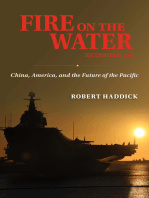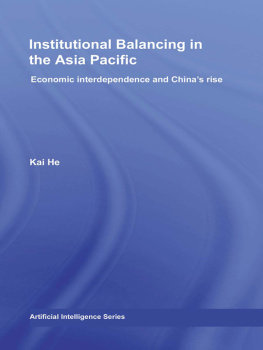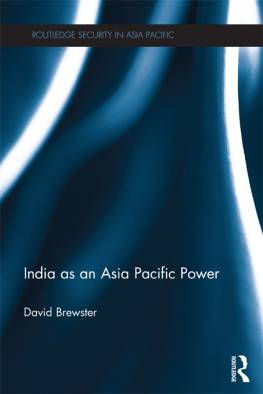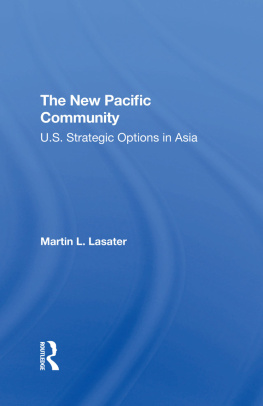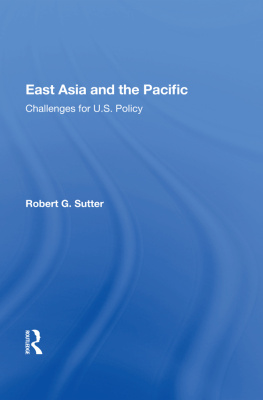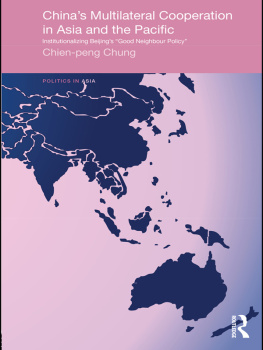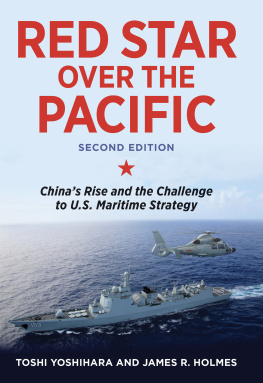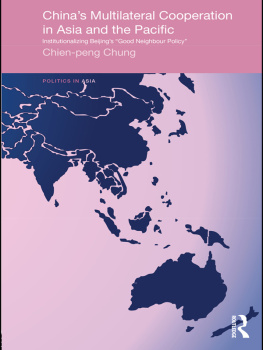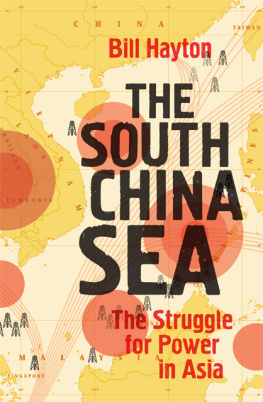| About the Author
Wayne Mapp is a commissioner in the New Zealand Law Commission. He was previously the minister of defense and minister of science and innovation from 2008 to 2011. As minister of defense he was responsible for developing a White Paper on Defence, which laid out the pathway of New Zealands defense policy and capability through 2030. He was the countrys first minister of defense in 27 years to be hosted by the U.S. Pacific Command at Pearl Harbor, Hawaii. He was the member of Parliament for the North Shore electorate in Auckland from 1996 to 2011, and he was awarded the Companion of the Queens Service Order for parliamentary and ministerial services in 2013.
Dr. Mapp was born in 1952 in Northland, New Zealand, and grew up on a farm in Reporoa, in the central North Island. He gained a bachelor of laws with honours at the University of Auckland, a master of laws from the University of Toronto, and his PhD in international law from the University of Cambridge. He worked in private practice after graduation. From 1984 to 1996, he lectured at Auckland University where he was an associate professor of commercial law and member of the University Senate. He specialized in international law, taxation law, and constitutional issues. He has published internationally in these areas. Dr. Mapp was a commissioned officer in the New Zealand Army (Territorial Force), where he specialized in military intelligence, infantry, and signals. He has a private pilot license and is also a glider pilot.
About CSIS
For over 50 years, the Center for Strategic and International Studies (CSIS) has worked to develop solutions to the worlds greatest policy challenges. Today, CSIS scholars are providing strategic insights and bipartisan policy solutions to help decisionmakers chart a course toward a better world.
CSIS is a nonprofit organization headquartered in Washington, D.C. The Centers 220 full-time staff and large network of affiliated scholars conduct research and analysis and develop policy initiatives that look into the future and anticipate change.
Founded at the height of the Cold War by David M. Abshire and Admiral Arleigh Burke, CSIS was dedicated to finding ways to sustain American prominence and prosperity as a force for good in the world. Since 1962, CSIS has become one of the worlds preeminent international institutions focused on defense and security; regional stability; and transnational challenges ranging from energy and climate to global health and economic integration.
Former U.S. senator Sam Nunn has chaired the CSIS Board of Trustees since 1999. Former deputy secretary of defense John J. Hamre became the Centers president and chief executive officer in 2000.
CSIS does not take specific policy positions; accordingly, all views expressed herein should be understood to be solely those of the author(s).
2014 by the Center for Strategic and International Studies. All rights reserved.
ISBN: 978-1-4422-2841-2 (pb); 978-1-4422-2842-9(eBook)
Center for Strategic & International Studies
1616 Rhode Island Avenue, NW
Washington, DC 20036
202-887-0200 | www.csis.org
Rowman & Littlefield
4501 Forbes Boulevard
Lanham, MD 20706
301-459-3366 | www.rowman.com
| Acknowledgments
The author is deeply grateful to those at CSIS who assisted with this reports publication. I would like to thank Ernest Bower, codirector of the CSIS Pacific Partners Initiative and Sumitro Chair for Southeast Asia Studies; Gregory Poling, fellow with the Pacific Partners Initiative and the Sumitro Chair; and Elke Larsen, research assistant and program coordinator with the Pacific Partners Initiative and the Sumitro Chair, for their support and assistance.
I would also like to thank John McKinnon, former New Zealand secretary of defense and current executive director of the Asia New Zealand Foundation, and John Allen, New Zealands chief executive and secretary of foreign affairs and trade, for their advice and input.
| Abbreviations and Acronyms
| ADIZ | air defense identification zone |
| ADMM+ | ASEAN Defense Ministers Meeting Plus |
| ANZAC | Australian and New Zealand Army Corps |
| ANZUS | Australia, New Zealand, United States Security Treaty |
| APEC | Asia-Pacific Economic Cooperation |
| ASEAN | Association of Southeast Asian Nations |
| AWACS | airborne warning and control system |
| C4ISR | command, control, communications, computers, intelligence, surveillance, and reconnaissance |
| CTBT | Comprehensive Nuclear Test Ban Treaty |
| EAS | East Asia Summit |
| EEZ | exclusive economic zone |
| FPDA | Five Power Defense Arrangement |
| GDP | gross domestic product |
| HADR | humanitarian assistance and disaster relief |
| LDP | Liberal Democratic Party |
| MFAT | Ministry of Foreign Affairs and Trade |
| NATO | North Atlantic Treaty Organization |
| NZSAS | New Zealand Special Air Service |
| NZ | New Zealand |
| NZTE | New Zealand Trade and Enterprise |
| OSD | Office of the Secretary of Defense |
| PAC-3 | Patriot Advanced Capability-3 missile |
| PIF | Pacific Islands Forum |
| PLA | Peoples Liberation Army |
| PRC | Peoples Republic of China |
| RCEP | Regional Comprehensive Economic Partnership |
| RIMPAC | Rim of the Pacific Exercise |
| TPP | Trans-Pacific Partnership |
| UN | United Nations |
| V/STOL | vertical and/or short takeoff and landing |
| Introduction: The Essence of the Dilemma
O ver the next two decades New Zealand faces a paradox. The countrys security and economic relationships are being pulled in opposite directions. Over the last 20 years, these relationships have become increasingly divergent. The Peoples Republic of China (PRC)is rapidly becoming New Zealands most important economic partner behind Australia. At the same time New Zealand is forging a new security relationship with the United States. This divergent tendency is likely to intensify over the next two decades.
At first blush this paradox would seem to be unsustainable, especially when viewed from the perspective of 2030. By that time, China is almost certain to be the worlds largest economy, and will be New Zealands most important economic partner in trade, investment, and services.
China will also expect to have influence in global affairs that will reflect its economic status. Understandably New Zealands strategic partner, the United States, will not view this change in world affairs with equanimity. It will seek to counter this development by reinforcing U.S. engagement with the Asia-Pacific nations with reference to its more attractive liberal democratic values.
The United States will be able to back up these qualities with the scale of its economy, which will still be comparable to that of China and which will have deep international connections, including with New Zealand. The United States will also have military forces with global reach, which for the next 20 years at least will be unrivaled. But it will be challenged by the increased tempo of the arms buildup in East Asia.


